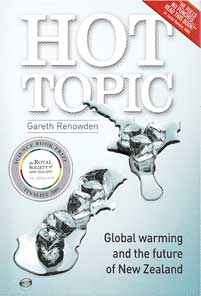 An item of minor import to the world, but some significance to the writer: the PDF edition of Hot Topic is now available for a mere NZ$10 (all the words and pictures, none of the paper, half the original price) from the “Buy” tab in the menu at the top every page. Traditional paper copies are also available, signed, direct from the author for NZ$25 (NZ residents) or NZ$40 (including airmail shipping) for overseas readers. Copies seldom take longer than a week to reach the furthest corners of the world…
An item of minor import to the world, but some significance to the writer: the PDF edition of Hot Topic is now available for a mere NZ$10 (all the words and pictures, none of the paper, half the original price) from the “Buy” tab in the menu at the top every page. Traditional paper copies are also available, signed, direct from the author for NZ$25 (NZ residents) or NZ$40 (including airmail shipping) for overseas readers. Copies seldom take longer than a week to reach the furthest corners of the world…
6 thoughts on “Stop me and buy one”
Leave a Reply
You must be logged in to post a comment.

I have enough toilet paper thank you. I would hate to think of the bullshit written in your novel getting rid of the cling ons around my Arse.
To the reality-based community, that counts as a recommendation. Thanks, Peter.
lol try wiping your arse with a PDF… long-term vacancy upstairs with this one 🙂
hmm, how to explain the behaviour of denial … is it “systems justification“? See this piece by Ted Nordhaus and Michael Shellenberger, from Yale Environment 360, part of the Guardian Environment Network, Nov 17th
Apocalypse fatigue: Losing the public on climate change
Makes an important point, that raising public conciousness leads to a backlash – the second half is especially good seeking to explain denial, the first half is providing evidence of the extent of denial.
Stuey, although there were some useful observations in the Yale article I thought when I read it that the authors found it rather too convenient to claim that unnamed advocates, “in their zeal to promote action, have made representations about the state of climate science that go well beyond any established scientific consensus on the subject, hyping the most dire scenarios and most extreme recent studies, which are often at odds with the consensus of the Intergovernmental Panel on Climate Change.” Who are they referring to? Do they know, or is this one of those notions lying around which they’ve picked up without examining it? It’s an important issue, because they suggest that it provides a measure of justification for the public lack of concern.
The thrust of the final sections of the article seemed to be that the expert opinion of climate scientists needs to be treated with caution, apparently on the generalised grounds that expert opinion per se doesn’t have all that good a record. And their conclusion that Americans will support policies to reduce carbon emissions “so long as the costs are reasonable and the benefits, both economic and environmental, are well-defined” seemed to me to beg the question. How do we assess what is reasonable until we know what is at stake? Do the authors accept what the scientific picture really is? We can’t insist that it fit relatively comfortably into the world we are familiar with. In fact it seems to me that in the light of what climate change threatens the costs are eminently reasonable and the benefits enormous. But I suspect Nordhaus and Shellenberger would sniff an element of the apocalyptic in my claiming so.
I admit to feeling apocalyptic about climate change, no matter how hard I try not to. The sober science of the IPCC does it for me, let alone the reputable studies since which firm up and advance elements which were unclear when the IPCC material was put together. Nordhaus and Shellenberger seem able to take a more sanguine view, which I don’t begrudge them. But I don’t see how they can treat it as normative
Peter Bickle is confused again. This time he has his arse and mouth round the wrong way. It would take a lot more than toilet paper to wipe away the bullshit that comes out of his mouth.